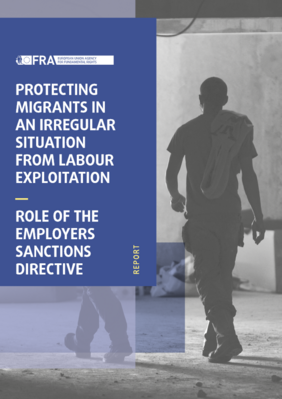Regardless of their status, workers have human rights. They should not be exposed to violence and abuse, they should not be forced to work in inhumane or dangerous conditions and they should get paid for their work.
The Employers Sanctions Directive was primarily enacted to dissuade employers from recruiting migrants in an irregular situation, but it also contains provisions to protect workers. It facilitates access to justice for exploited workers and sets out workers’ rights to claim back payment of outstanding wages. The directive also contains provisions to enhance the effectiveness of labour inspections. This report describes how the 25 Member States bound by the directive have been implementing its protective provisions, focusing on the impact these provisions have on migrant workers in an irregular situation who are victims of exploitation and other labour law violations.
This report shows what needs change to ensure workers’ rights are respected. From improving the complaint systems, to providing more information and ensuring irregular workers get compensated for their work, EU countries can do a lot more to protect workers from exploitative employers. It can start with small steps, for example by requiring labour inspections to focus on labour conditions and not on reporting workers’ status to immigration authorities.
The directive came into force in 2009. It applies to all EU countries except Denmark and Ireland.
Link to the PDF (EN)

